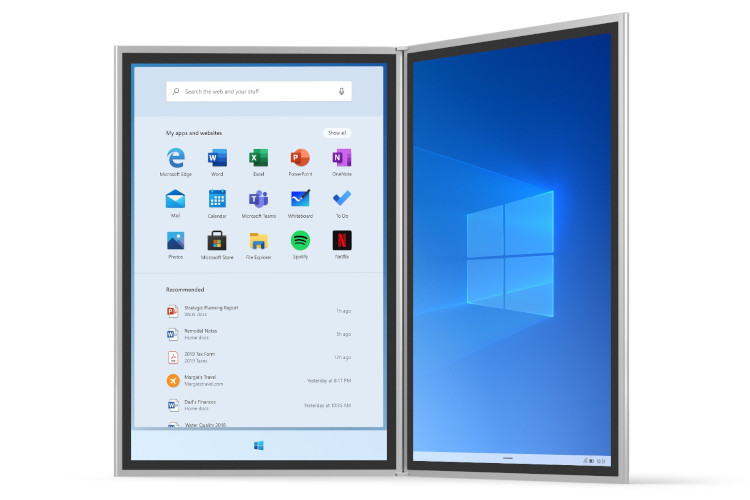
In a surprising turn of events, Microsoft launched a series of hardware devices at the Surface event in New York which were not expected. But what stood out the most was the Surface Neo and the software it was running. Surface Neo is a dual-screen, foldable device which is running Windows 10X, a new operating system by Microsoft. So, if you are wondering, if this is the new operating system that will eventually replace Windows 10, you can’t be more wrong. In this article, I explain what is Windows 10X and who it’s meant for in a comprehensive manner. With that said, let’s begin the article.
What Exactly is Windows 10X?
Many Windows users have been waiting for a mobile version of Windows 10, but sadly, Windows 10X is not that. Windows 10X is another variant (code-named Santoni) of Windows 10, just like the Windows 10S. However, it’s primarily built for foldable and dual-screen devices like the Surface Neo. It comes with many optimizations to make Windows apps more modular and easy to use on a flexible screen. For what it’s worth, Windows 10X is very much a desktop-like operating system, but with mobility and convenience in mind.
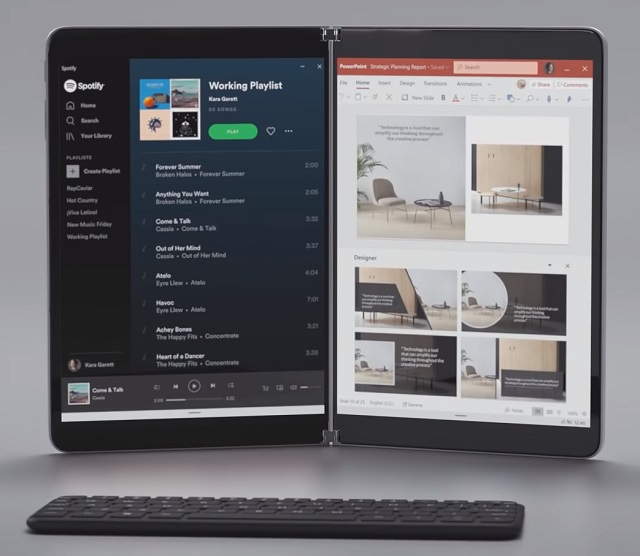
What are the New Features?
While Microsoft unveiled Windows 10X at a public event, they didn’t spill the beans altogether. At present, details regarding core architecture and software are still under the wraps, but we can reach certain conclusions from yesterday’s media briefing.
Starting with the UI design, Windows 10X no longer has a start menu instead it features a launcher with no live tiles or animation. The taskbar apps are centered and I think it looks much better for a mobile-first device. Further, in terms of OS update handling, Windows 10X comes with a seamless update mechanism that works way better than Windows 10’s current update system.
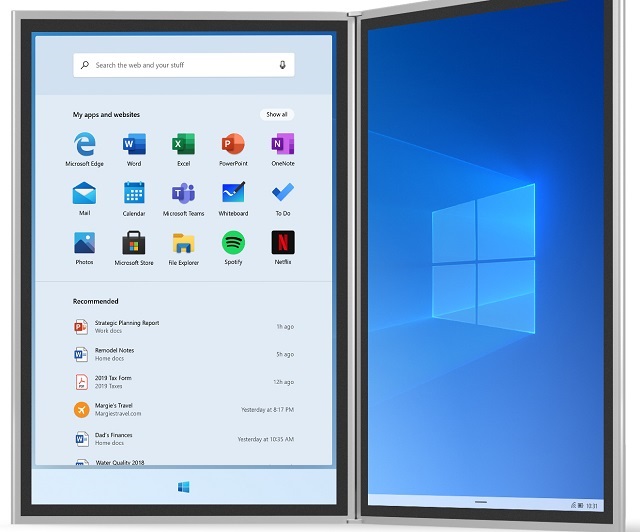
Other than that, it has a few features up its sleeves to make the foldable experience convenient and more accessible. For instance, if you invoke an app on one side of the screen, the app opens up on that particular side. However, if you want to leverage the second screen as well, you can just move the app to the center and the application will span to both the screens. Microsoft calls this feature “Spanning” and it works pretty well.
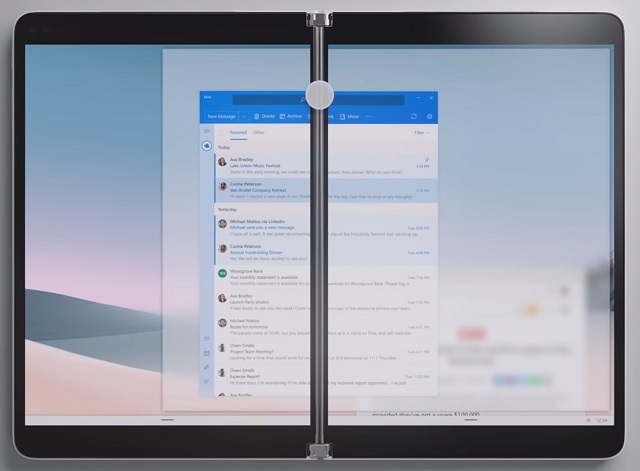
Another feature worth mentioning is “Wunderbar”. If you choose to use a keyboard, Windows 10X will detect it and switch the second screen to Wunderbar mode. It’s very much like the touch bar on Mac, but there is ample space to watch videos, open another app or use the second screen as your touchpad. So these are the two features unique to Windows 10X, but both are still under development. It will be left to be seen, what further changes Microsoft brings next year to make the experience even more seamless on foldable devices.
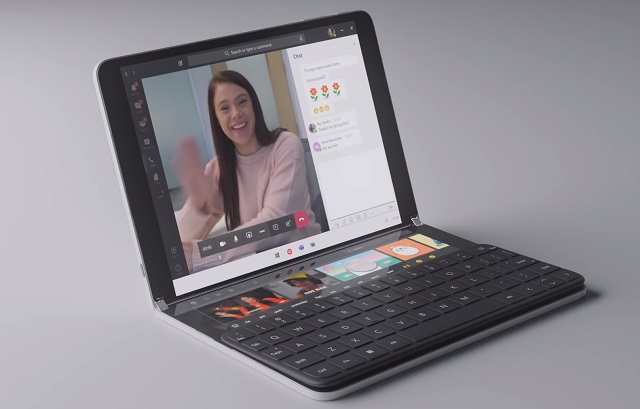
The Billion Dollar Question: What Apps Does Windows 10X Support?
In the launch event, Microsoft quipped that Windows 10X supports “the breadth of Windows applications” including Microsoft Office, Web apps, and PWAs. Make of it what you will, but Windows 10X can only run UWP (Universal Windows Apps) apps natively and Win32 applications in a container. If you don’t know what a container is, let me briefly explain the difference. Native apps are tightly integrated with the operating system so they perform much better without hogging crucial resources. Whereas, containers use a subsystem, in this case, a framework of Windows 10 with essential components for running a Win32 app. So basically, Win32 apps will run in a subsystem that is not optimized or deeply integrated with Windows 10X.
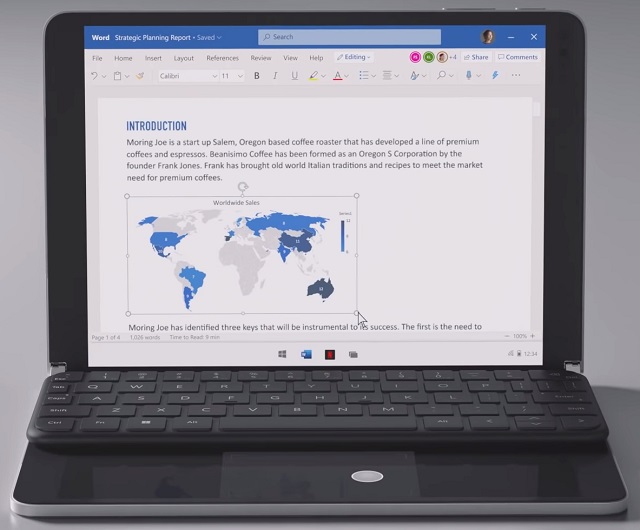
To break it down in simple language, Microsoft Office, Chromium Edge and other apps that use the older Windows API will run in a container. Microsoft has claimed that the performance will be on par with UWP apps but we will only get to know when it will be launched next year.
When will it Release?
Microsoft announced that Windows 10X will be available next year during Christmas. However, we might see insider builds mid-next year for public testing. Before that, Microsoft is engaging with Windows developers around the world to create applications, especially for the Windows 10X platform. Further, Microsoft is also partnering with many hardware giants including HP, Asus, Dell and Lenovo who will release foldable devices powered by Windows 10X during Fall, next year.
Will Windows 10 Users Get the Update?
As I discussed above, Windows 10X is entirely a new product category which is mainly designed for foldable devices. So, if you are running a Windows 10 PC, you won’t get the update. However, keep in mind, Windows 10X is based on Intel’s architecture, so at some point, it might run on normal PCs.
SEE ALSO: How to Reply to Messages from Windows 10 [Supports WhatsApp
Are You Ready for This New Windows Version?
While Windows 10X may seem just another variant of Windows 10, it can be a game-changer for Microsoft. After losing out on smartphones, the software giant doesn’t want to miss the train to the foldable world. With the launch of Surface Neo and Windows 10X, Microsoft has surely made a dent in both hardware and software space. Now, we have to wait for another year to see what improvements Microsoft brings to the foldable space. So, are you excited about Windows 10X? Do let us know in the comment section below.
from Beebom https://beebom.com/windows-10x-everything-you-need-know/

No comments:
Post a Comment